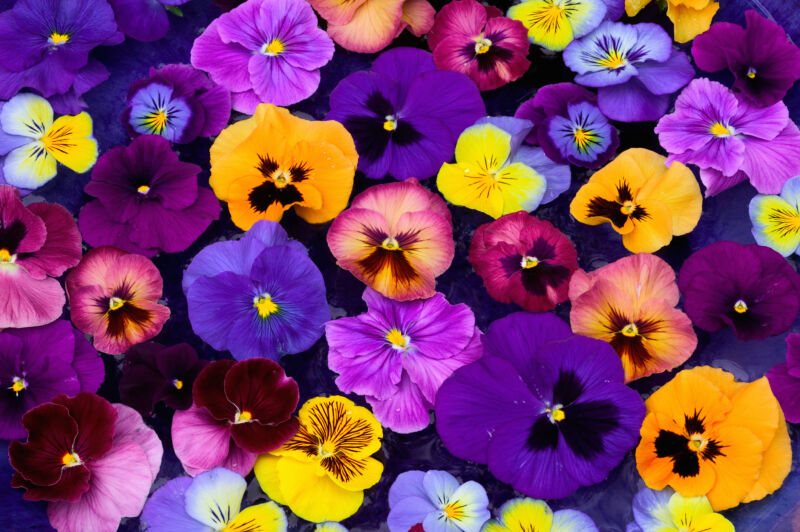With fewer pollinators, plants are cutting back on nectar production

Enlarge (credit: Darrell Gulin)
In a striking experiment, scientists from the French Centre Nationale de la Recherche Scientifique (CNRS) and the University of Montpellier have observed the impact of selective pressure on a flowering plant. By comparing the pansy flower variety of today that grows in the Paris region to those regrown from the seeds of the same variety collected in the 1990s and 2000s, the researchers have observed notable differences.
According to the study’s co-author, Pierre-Oliver Cheptou, the plant’s evolution over this period has resulted in a 25 percent increase in self-pollination (or selfing) in modern two plants. “We also noticed a 10 percent decrease in the flower size and a 20 percent reduction in the nectar production, which suggests the decrease in rewards for pollinators such as bumblebees,” he said.
To confirm this outcome, Cheptou and his colleagues conducted behavioral tests involving bumblebees “which preferred the ancestor plants,” Cheptou said.


